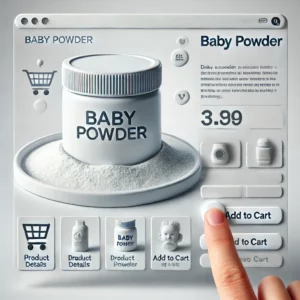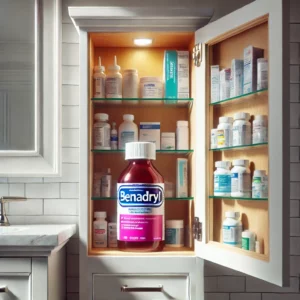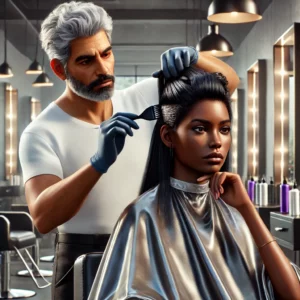FDA Testing Reveals Benzene Concerns in Multiple Benzoyl Peroxide Products
L’Oreal has voluntarily recalled all U.S. lots of La Roche-Posay’s Effaclar Duo Acne Spot Treatment due to benzene, a known carcinogen. The recall follows extensive FDA testing of 95 acne products containing benzoyl peroxide, identifying potentially elevated benzene levels in six specific products, including one lot of the Effaclar Duo treatment. Though La Roche-Posay stated the trace amounts found “do not pose a safety risk,” the company initiated the recall in coordination with the FDA as part of its commitment to quality standards. The affected product has been removed from retailers and is no longer available for purchase as the company prepares to launch a reformulated version.
5 Key Points
- FDA testing identified benzene concerns in La Roche-Posay Effaclar Duo Acne Spot Treatment with lot number MYX46W (expiration April 2025).
- The recall follows a March 2024 Valisure laboratory report that found benzoyl peroxide can degrade into benzene under certain conditions.
- Despite the recall, the FDA emphasized that cancer risk from these products remains “very low” even with decades of daily use.
- This is a retail-level recall, meaning stores must remove products from shelves, but no specific consumer action is required.
- La Roche-Posay is developing a new formula of Effaclar Duo that will be available soon to replace the recalled product.
What Prompted The FDA Investigation Into Benzoyl Peroxide Products?
The FDA’s investigation into acne treatments containing benzoyl peroxide began after Valisure, an independent laboratory in Connecticut, published concerning findings in March 2024. Valisure’s report revealed that benzoyl peroxide, a common ingredient in acne treatments, can degrade into benzene—a carcinogen frequently found in cigarette smoke and gasoline—particularly when exposed to high temperatures or UV light. According to Valisure’s findings, some products contained over 800 times the FDA’s acceptable benzene limit, prompting the lab to petition the FDA to recall and suspend sales of benzoyl peroxide products from the U.S. market. These alarming results were later supported by a September 2024 study published in the Journal of Investigative Dermatology, which sampled more than 100 products from six states and found similar concerns. The mounting evidence led the FDA to conduct its own comprehensive testing of 95 acne products containing benzoyl peroxide to determine the extent of the potential contamination and identify which specific products might pose a risk to consumers.
How Serious Is The Benzene Contamination Risk?
Despite the recall actions, health officials have emphasized that the danger to consumers remains minimal. The FDA explicitly stated in its recall notice that “even with daily use of these products for decades, the risk of a person developing cancer because of exposure to benzene found in these products is very low.” This assessment helps contextualize the recall as a precaution rather than an urgent public health crisis. Benzene is classified as a known human carcinogen by the American Cancer Society, with long-term exposure potentially linked to leukemia and other blood cancers. However, the FDA’s evaluation suggests the trace amounts found in the affected skincare products represent a significantly lower exposure risk than other sources of benzene, such as cigarette smoke, vehicle exhaust, or industrial emissions. Notably, while the FDA initiated a retail-level recall requiring stores to remove the products from their shelves, the agency did not issue consumer-level recall instructions, meaning those who have already purchased the products were not specifically directed to discontinue use or dispose of them.
Which Products Are Affected By The FDA’s Benzene Recall?
While La Roche-Posay’s Effaclar Duo has received significant attention, it represents just one of six acne treatments identified in the FDA’s investigation. The complete list of recalled products includes: La Roche-Posay Effaclar Duo Dual Action Acne Treatment (lot number MYX46W, expiration April 2025), Walgreens Acne Control Cleanser (lot number 23 09328, expiration September 2025), Proactiv Emergency Blemish Relief Cream (lot numbers V3305A and V3304A, expiration October 2025), Proactiv Skin Smoothing Exfoliator (lot number V4204A, expiration July 2025), SLMD Benzoyl Peroxide Acne Lotion (lot number 2430600, expiration March 2025), and Walgreens Tinted Acne Treatment Cream (lot number 49707430, expiration March 2026). Additionally, Zapzyt Acne Treatment Gel was independently recalled after its manufacturer conducted its own testing and discovered benzene contamination. It’s worth noting that the FDA tested a total of 95 products containing benzoyl peroxide and found that over 90% had undetectable or extremely low levels of benzene, suggesting that the issue is not universal among all acne products containing this active ingredient.
How Has La Roche-Posay Responded To The Recall?
La Roche-Posay has proactively addressed the benzene concerns in its Effaclar Duo Acne Spot Treatment. In a statement to media outlets, a company spokesperson acknowledged that “recent testing revealed minimal traces of benzene in one lot of the product.” While emphasizing that these trace levels do not pose a safety risk, the spokesperson noted that the company is “committed to upholding the highest quality standards” and has “proactively decided to remove the limited remaining units of the current formula of Effaclar Duo from retailers.” This voluntary action was taken in close coordination with the FDA. Beyond simply removing the current product, La Roche-Posay revealed it has been developing an improved formula of Effaclar Duo since early 2024, which will replace the recalled version. The spokesperson characterized the recall as creating “a seamless transition to our new and improved Effaclar Duo formula, which has been in development since 2024 and will be available to consumers soon.” The timing suggests the company may have been working on reformulation even before the FDA’s findings were announced.
What Should Consumers Do If They Own Recalled Products?
The FDA’s official position on the recalled acne treatments is surprisingly measured, with no specific instructions for consumers who may already possess these products. This approach starkly contrasts many recalls, which typically include detailed disposal instructions and potential refund information. The lack of consumer-level directives reflects the FDA’s assessment that the cancer risk from these products is “very low,” even with decades of daily use. However, some manufacturers have taken additional steps to address customer concerns. Alchemee LLC, the maker of Proactiv, announced it is offering refunds or replacements to customers who purchased its recalled Emergency Blemish Relief and Skin Smoothing Exfoliator products. Dermatologists recommend that consumers who are concerned about potential benzene exposure should store benzoyl peroxide products in cool, dark places to minimize degradation, check expiration dates before use, and consider alternatives to benzoyl peroxide, such as salicylic acid treatments, which have not been associated with benzene concerns. Those specifically seeking alternatives to La Roche-Posay’s Effaclar Duo may want to inquire about the brand’s upcoming reformulated version.
FAQ
Q: What exactly is being recalled from La Roche-Posay?
A: La Roche-Posay has recalled all U.S. lots of its Effaclar Duo Acne Spot Treatment, with special attention to lot number MYX46W (expiration April 2025), which was specifically identified in FDA testing as containing traces of benzene.
Q: What is benzene, and why is it dangerous?
A: Benzene is a chemical component found in crude oil, gasoline, and cigarette smoke that is classified as a known human carcinogen. Long-term exposure to high levels of benzene can increase the risk of developing leukemia and other blood cancers.
Q: How did benzene get into these acne treatments?
A: Benzoyl peroxide, a common acne-fighting ingredient, can degrade into benzene under certain conditions, such as exposure to high temperatures (98-120°F) or UV light over time.
Q: Should I stop using my La Roche-Posay Effaclar Duo immediately?
A: The FDA has not issued specific instructions for consumers to discontinue use, noting that “the risk of a person developing cancer because of exposure to benzene found in these products is very low.” However, the product has been removed from retailers as a precaution.
Q: Will La Roche-Posay offer refunds for recalled products?
A: While La Roche-Posay has not specifically announced a refund program, the company is developing a new formula of Effaclar Duo that will soon replace the recalled version. Customers with concerns may want to contact the company directly.
Q: Are all benzoyl peroxide products unsafe?
A: No. The FDA tested 95 acne products containing benzoyl peroxide and found that more than 90% had undetectable or extremely low levels of benzene, suggesting most benzoyl peroxide products remain safe to use.
Q: When will the new formula of La Roche-Posay Effaclar Duo be available?
A: La Roche-Posay stated the new formula “has been in development since 2024 and will be available to consumers soon” but did not provide a specific release date.
Q: How can I check if I have one of the recalled products?
A: Check for lot number MYX46W and an expiration date of April 2025 on your La Roche-Posay Effaclar Duo packaging. This specific lot was identified in FDA testing.
Q: What alternatives are available for acne treatment?
A: Products containing salicylic acid, sulfur, or adapalene can be effective alternatives to benzoyl peroxide acne treatments. Consulting with a dermatologist for personalized recommendations is advised.
Q: Should I be worried about other skincare products containing benzene?
A: The FDA regularly monitors skincare products for safety concerns. This specific recall is limited to certain benzoyl peroxide products, and the agency has emphasized that even for affected products, the cancer risk is “very low.”
Citations
U.S. Food and Drug Administration. (March 2025). FDA Announces Voluntary Recalls of Certain Benzoyl Peroxide-Containing Products. FDA.gov.
Health.com. (March 2025). L’Oreal Recalls Popular La Roche-Posay Acne Treatment Over Cancer-Causing Chemical. https://www.health.com/la-roche-posay-recall-11694971
NBC News. (March 2025). Some La Roche-Posay Skin Care Has Been Recalled — Here are Benzene-Free Alternatives. https://www.nbcnews.com/select/shopping/la-roche-posay-recall-rcna196472
ABC News. (March 2025). La Roche-Posay, Proactiv, Walgreens skin care products voluntarily recalled. https://abcnews.go.com/GMA/Wellness/skincare-products-recalled-benzene/story?id=119751160








